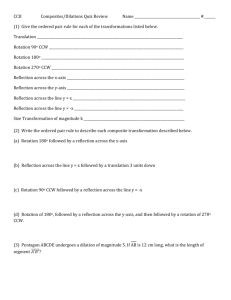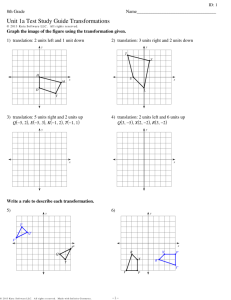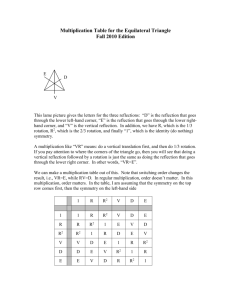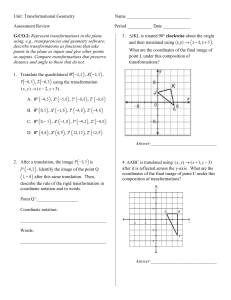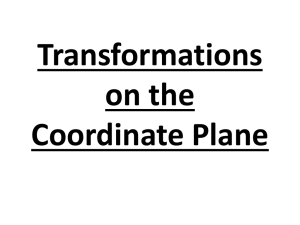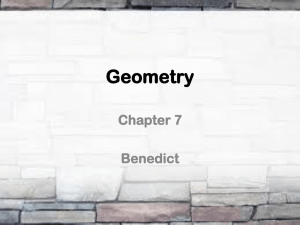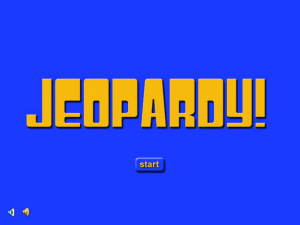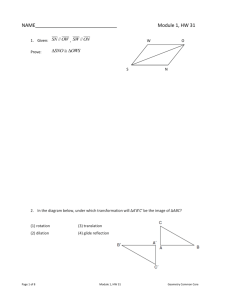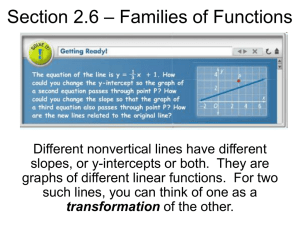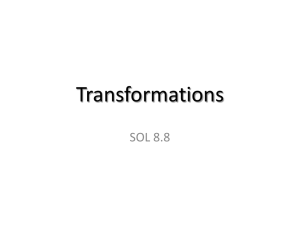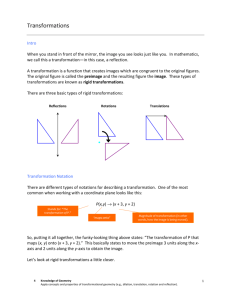Unit 5 - EOCT Review
advertisement
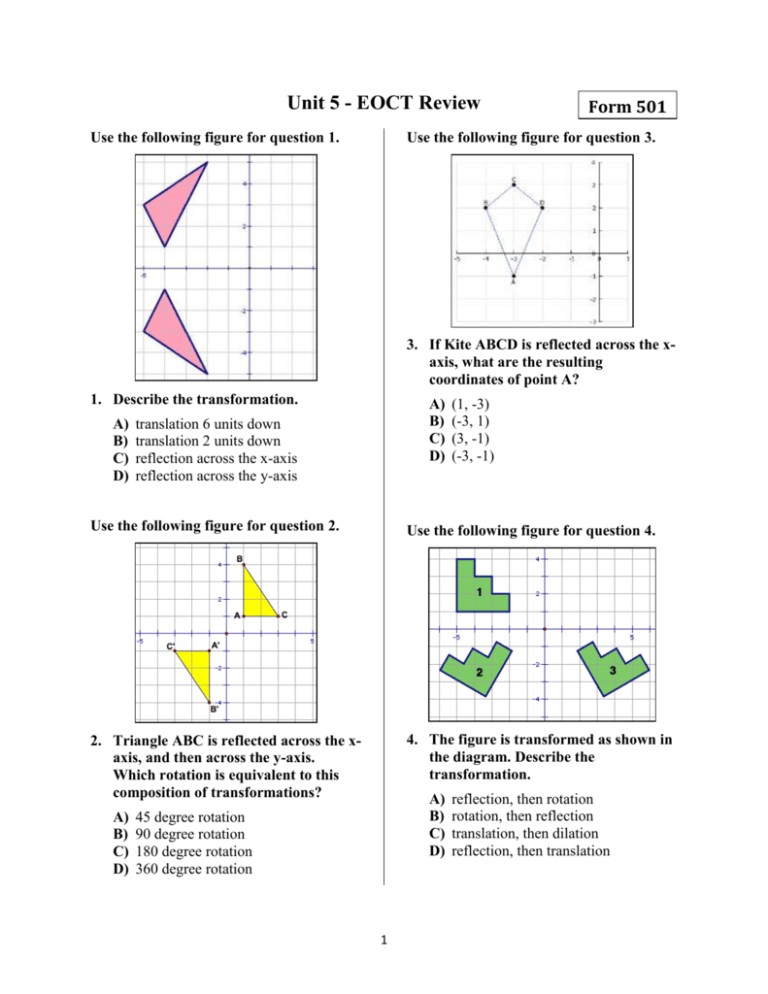
Unit 5 - EOCT Review Use the following figure for question 1. Form 501 Use the following figure for question 3. 3. If Kite ABCD is reflected across the xaxis, what are the resulting coordinates of point A? 1. Describe the transformation. A) B) C) D) A) B) C) D) translation 6 units down translation 2 units down reflection across the x-axis reflection across the y-axis (1, -3) (-3, 1) (3, -1) (-3, -1) Use the following figure for question 2. Use the following figure for question 4. 2. Triangle ABC is reflected across the xaxis, and then across the y-axis. Which rotation is equivalent to this composition of transformations? 4. The figure is transformed as shown in the diagram. Describe the transformation. A) B) C) D) A) B) C) D) 45 degree rotation 90 degree rotation 180 degree rotation 360 degree rotation 1 reflection, then rotation rotation, then reflection translation, then dilation reflection, then translation Use the following figure for question 5. Use the following figure for question 6. 5. Which triangle would be congruent to the original using a reflection over the x-axis and the y-axis? 6. Which type of transformation is shown here? A) B) C) D) A) dilation reflection rotation translation Use the following figure for question 7. B) 7. You are given rectangle ABCD on the grid shown and are told that the figure is reflected, but you are not told over which axis this has occurred. Which COULD be the new coordinates of point D? C) A) B) C) D) D) 2 (4, -4) (-6, -4) (-2, -2) (-1, -4) Use the following figure for question 8. Use the following figure for question 10. 8. The figure is transformed as shown in the diagram. Describe the transformation. A) B) C) D) dilation, then reflection reflection, then rotation rotation, then translation translation, then reflection Use the following figure for question 9. 10. The transformation of triangle ABC is an example of what? A) B) C) D) 11. A triangle in the coordinate plane has coordinates of (2,3), (-4,-5), and (-2, 4). It is reflected about the y-axis. What are its new coordinates? 9. Which type of transformation is shown here? A) B) C) D) Translation of (0, -8) Translation of (0, 8) A reflection across the y-axis A reflection across the x-axis dilation reflection rotation translation A) B) C) D) 3 (-2,3), (4,-5), (2,4) (-2,-3), (4,5), (2,-4) (2,-3), (-4,5), (-2,-4) (-2,-3), (-4,-5), (-2,-4) Use the following figure for question 12. Use the following figure for question 14. 12. A rotation in the origin is shown. The angle of rotation appears to be 14. The triangle is transformed as shown in the diagram. Describe the transformation. A) B) C) D) 30°. 45°. 60°. 90°. A) B) C) D) dilation, then reflection rotation, then reflection reflection, then rotation translation, then reflection Use the following figure for question 13. Use the following figure for question 15. 15. Which transformation will move polygon ABCD completely into one quadrant? 13. When the upper right trapezoid is translated to the lower left one, the new coordinates of the point (0, 0) will be A) B) C) D) A) B) C) D) (-6, -2). (-2, -8). (-8, -6). (-6, -8). 4 up 5 units left three units reflect over the x-axis reflect over the y-axis
